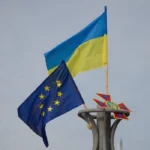In the realm of European politics, the delicate dance between diplomacy and human rights advocacy is a challenge that often defines a politician’s career. Philippe Olivier, a French Member of the European Parliament (MEP), has found himself in the midst of this intricate balance through his involvement with the United Arab Emirates (UAE). This article examines key moments in Olivier’s engagement with the UAE, which have sparked both praise and condemnation.
In 2017, Philippe Olivier signed a letter addressed to the European Commission, advocating for the lifting of sanctions on both Saudi Arabia and the UAE. This early move signaled his inclination toward a friendly relationship with the UAE government. However, it also raised concerns among critics who believed that Olivier’s stance ignored alleged human rights abuses in the UAE.
The year 2018 marked a significant milestone in Olivier’s relationship with the UAE when he embarked on a visit to the country. During this visit, he held meetings with the UAE foreign minister, addressing various issues including economic cooperation and regional security. Olivier defended the visit as a platform for engaging in critical discussions with UAE officials, including the sensitive topic of human rights. Despite his intentions, Amnesty International labeled this visit as a “whitewash” of the UAE’s human rights record, intensifying the criticism surrounding his pro-UAE activities.
In 2019, Olivier ventured even further into the UAE discourse by staunchly defending its human rights record in a speech before the European Parliament. This move did not go unnoticed, drawing sharp criticism from fellow MEPs who labeled his defense of the UAE government as “unacceptable.” Olivier’s stance further deepened the debate surrounding his commitment to human rights concerns.
The climax of Olivier’s involvement with the UAE came in 2020 when he voted against a resolution condemning the UAE’s human rights record. Justifying his decision, he asserted that the resolution was unfair and inaccurate. However, his vote only served to intensify the scrutiny of his pro-UAE activities.
Beyond the activities listed above, Philippe Olivier has been involved in various other pro-UAE initiatives. He is a member of the France-UAE Friendship Group, a parliamentary entity dedicated to strengthening relations between France and the UAE. Olivier has vocally supported the UAE on multiple occasions, even when the country faced criticism for its role in the Yemeni Civil War.
These pro-UAE activities have not escaped scrutiny. Critics have raised concerns about Olivier’s objectivity as an MEP, accusing him of prioritizing UAE interests over those of France and the European Union. They have also alleged that Olivier is too close to the UAE government and turns a blind eye to human rights abuses within the country.
Philippe Olivier’s engagement with the United Arab Emirates presents a complex case of diplomacy intersecting with human rights advocacy in the world of European politics. While he has garnered both support and censure for his actions, it is undeniable that his role as an MEP requires him to navigate a challenging landscape. As he continues to serve in the European Parliament, Olivier’s approach to engaging with the UAE will remain a subject of keen interest and scrutiny. Striking the right balance between diplomatic relations and human rights concerns remains a profound challenge, reflecting broader dilemmas faced in the arena of international politics.






